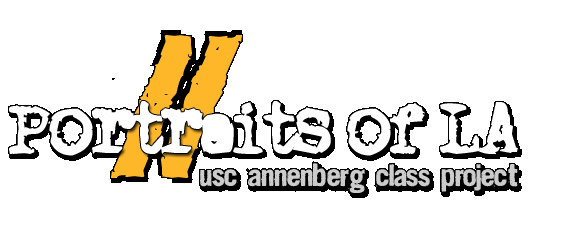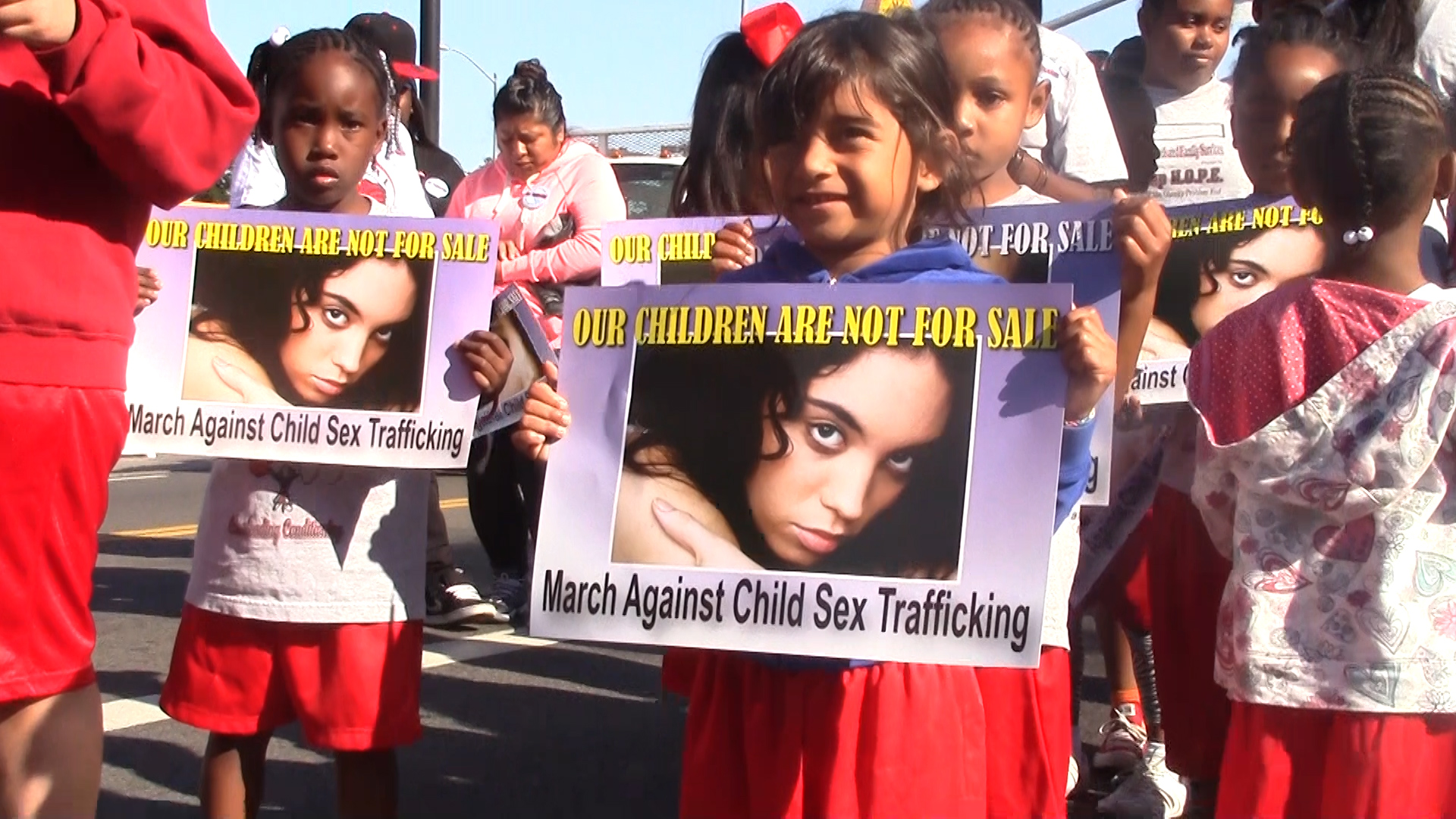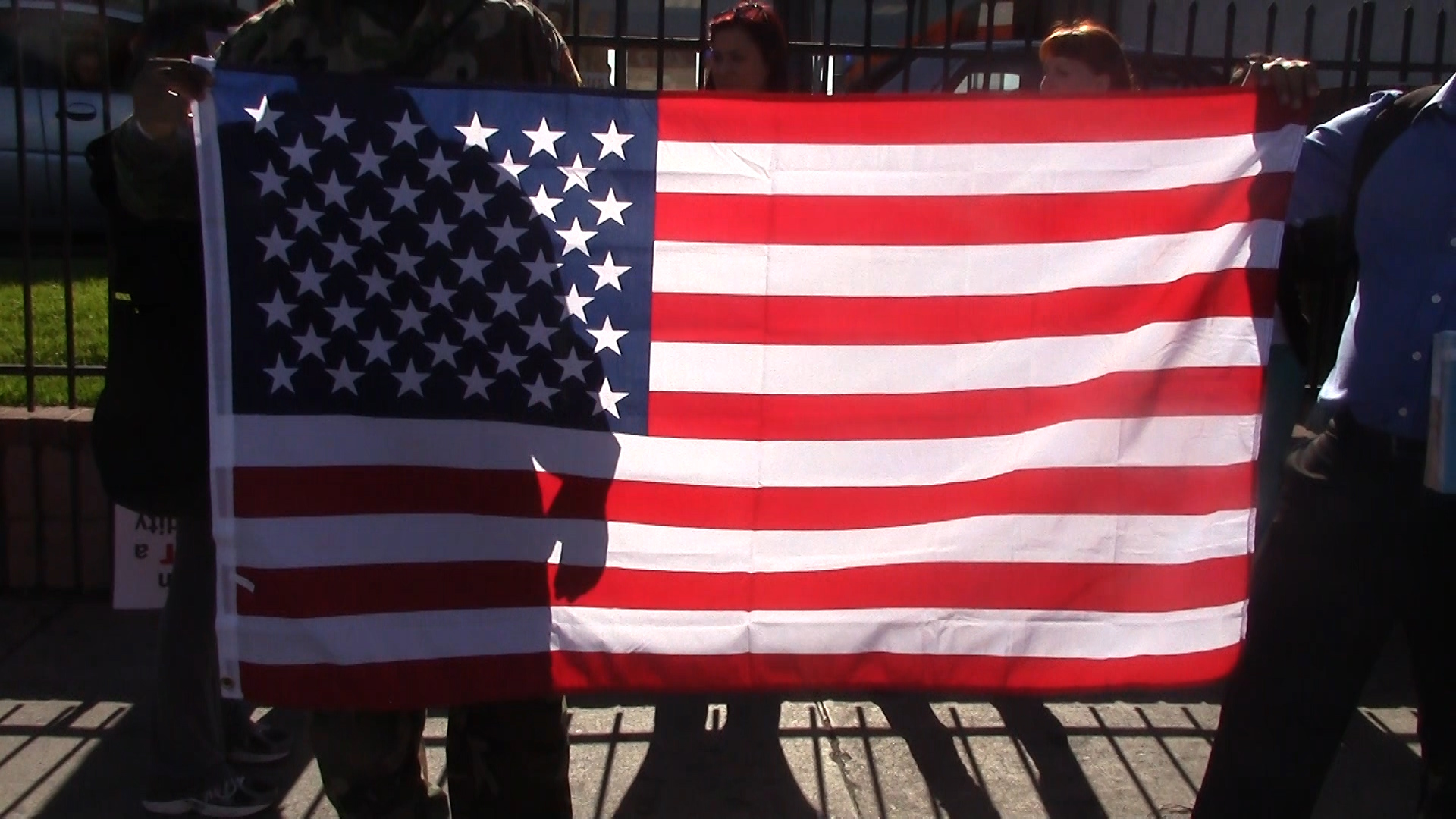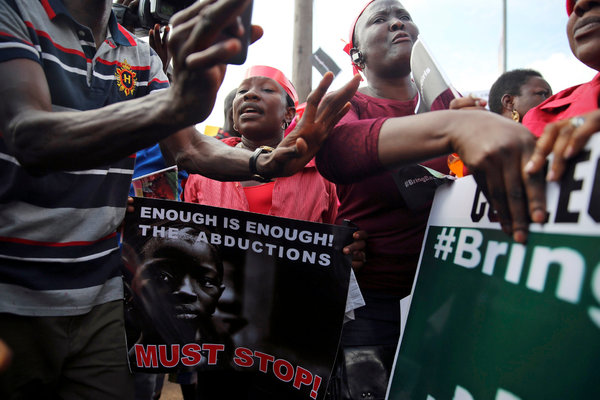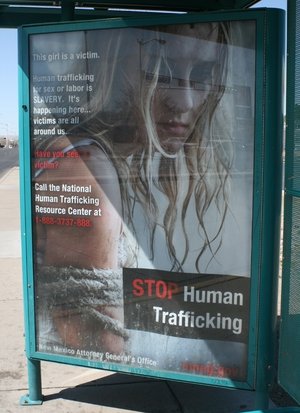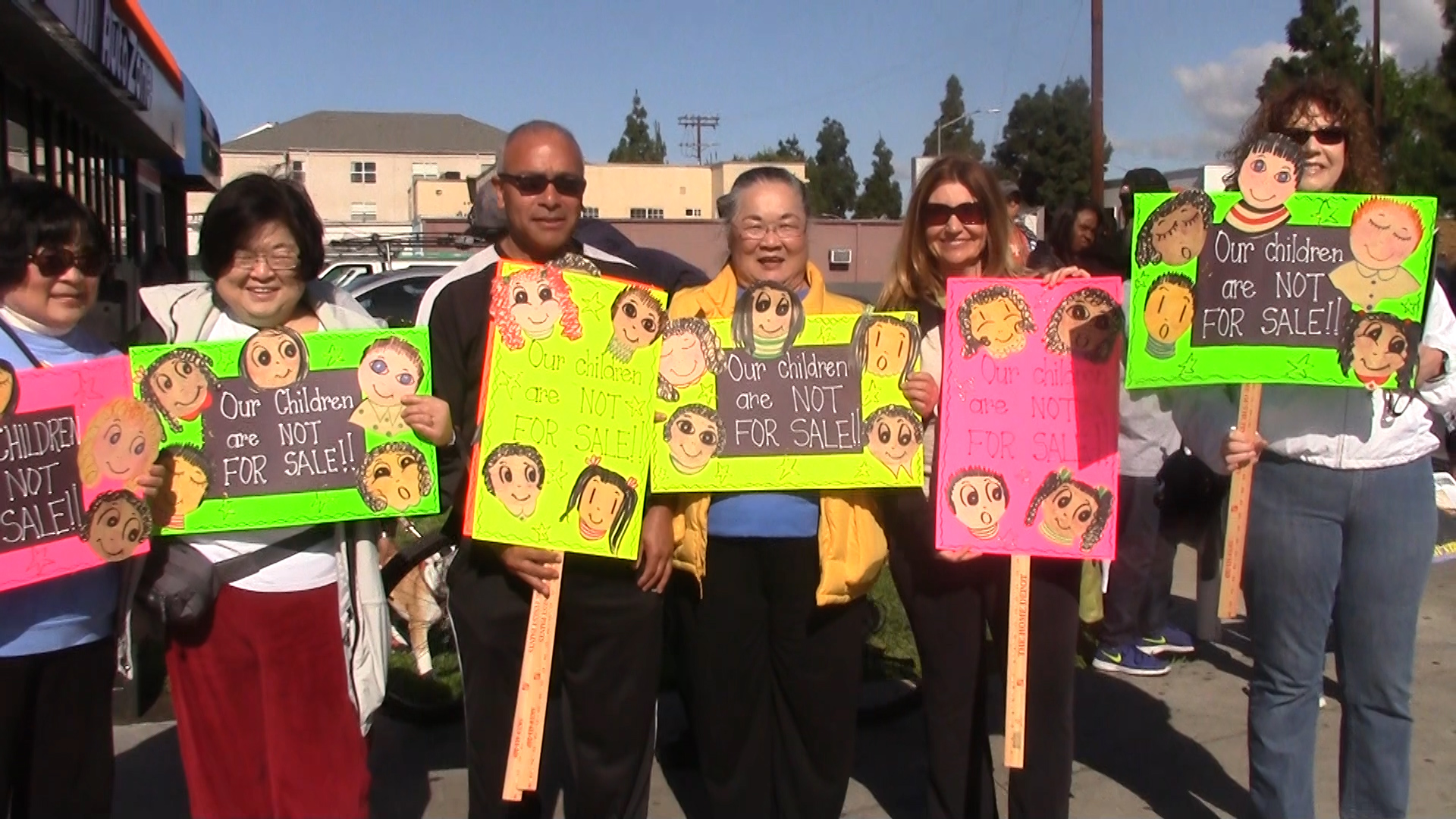Child Sex Trafficking Rally In South L.A. by Ashley Nash
Sex Trafficking has affected many communities throughout the world, impacting the lives of victims and families everywhere. The Los Angeles City Council and community are taking a stand, particularly against its affect on our youth.
Nigerian Islamist group Boko Haram blames the abduction on western education. He plans to sell the girls off, claiming nine and twelve as appropriate ages for this to happen.
As the blindfolds are removed, the courts now see that victims of child trafficking and prostitutes may be more alike than different.
The Delaware Senate has approved a bill providing victims of trafficking with more protection.
By Ashley Nash
Members of the community and city council gathered in South Los Angeles on Saturday, April 26th to rally against the fastest growing criminal enterprise: Child Sex Trafficking. On the corner of Western Avenue and Martin Luther King Jr. Boulevard, an intersection associated with the L.A. Riots, hundreds took a stand initiating yet another revolution. Agencies and neighborhood councils joined locals, filling the streets with resounding chants and banners held high: “Our Children Are Not For Sale!”
With equal passion, several youth groups were in attendance. The Southern California Falcon Cheer Squad marched with banners in-hand, classmates and family by their side; learning early the power of coming together to achieve a social justice. Participant and U.S. Army Veteran, Anthony Wayne Ford states this is exactly what’s needed to make a difference.
Describing Child Sex Trafficking as one of Los Angeles’ “best kept secrets”, Ford says many people aren’t able to assist in prevention “because they’re not out there living it.” For 16 years, Ford has witnessed the commercial and sexual trafficking of children in South Los Angeles, attributing some of their vulnerability to aging out of foster care.
However, with the help of schools, churches and even libraries, Ford explains that children can begin to understand what situations cause vulnerability and the type of people that will take advantage of it. With the American flag extended between his hands, Ford states, “we have to take care of our children, they’re the future.” With plans to secure the future of our children and city, Supervisor Mark Ridley-Thomas aims to send trafficking victims a message of hope.
Though onlookers consider many men and women who walk the streets prostitutes, Supervisor Ridley-Thomas said that it’s this terminology that allows for trafficking to continue. “We need to stop calling our children prostitutes, because they’re not.” Behind an elevated podium, the supervisor relayed an uplifting speech detailing the ways in which the community can get involved.
With 100,000 to 300,000 children being trafficked in the United States each year, identifying youth correctly as trafficked victims rather than prostitutes is a great way to get started. Ridley-Thomas says that it is our duty to report what we see and put a stop to it, “to send a message to John’s that they can’t hide for much longer.” Along the same lines, the senates of Delaware have passed a human trafficking bill that creates harsher penalties for Johns and more protection for victims.
Giving victims the ability to sue traffickers, the bill also excuses any sexual crimes associated with being trafficked. Consequently, the number of arrests in which ‘prostitutes’ are charged with (‘indecency’ or ‘loitering’) may drop. With the help of an anticipated public awareness campaign, Delaware can identify traffickers and enforce the now mandatory prison sentences.
As the senate tackles this problem, increasing awareness within communities throughout the state, Chief Patricia Blevins states, “It’s not just something you see in the movies.” According to the SF Gate, other states are considering comparable legislature. Here in California, Director of the Los Angeles Probation Department Michelle Guymon participates in a task force composed of different sectors of Los Angeles officials and sex trafficking prevention organizations. Also insisting that prevention advocates recognize commercially/sexually exploited children as victims, Guymon states that explaining to someone that he/she is in fact a victim is too a difficult task.
In regards to coaching trafficked victims into recognizing what events created vulnerability, Guymon states that the primary discussion includes the ins and outs of coercion. Subsequently, the staff and victim(s) discuss the trafficker’s tactics and how this can possibly be connected to negative childhood experiences such as abuse. Lastly, for some, this is followed by dissecting the traffickers, their behavior and true intentions. However, these learning opportunities are not limited to task force staff and those that have experience commercial sex trafficking.
Between August and October, the YWCA Greater Los Angeles Sexual Assault Crisis Services will host close to twenty Sexual Assault Victim’s Advocate Orientations. Monthly trainings, community events and a commitment to social justice are just a few benefits of the information session. With the help of survivor advocates, prevention organizations, government and law enforcement officials, child sex trafficking can become a problem of the past.

